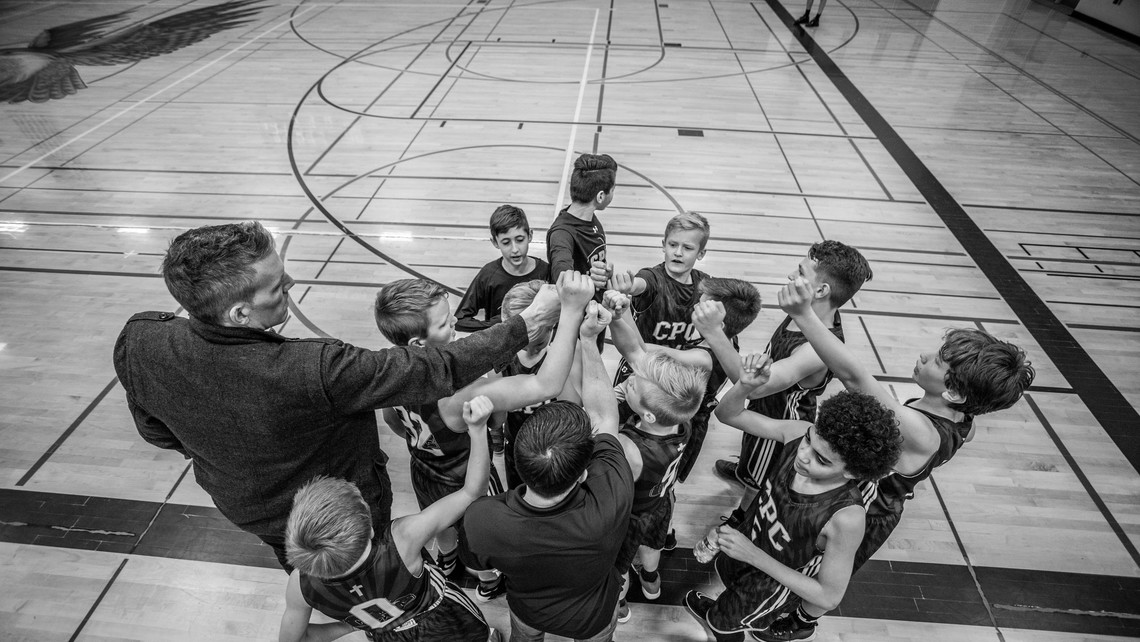
In my previous article, “It’s Not What You Think: Vision, Mission, Purpose, and Family – Part II,” I laid out an argument to view family through a Biblical lens, highlighting the primary vision, mission, and purpose of family as: cultivators, gardeners, and territory expanders for a heavenly Kingdom slowly, over time, permitting every fabric of human life. In part three of this series of articles, I wanted to express my vision of how we accomplish this vision through cultivating and creating a Multigenerational Family Team.
A return to a genuine shared vision, mission, and purpose as a family begins with an invitation to shift our perspective in cultivating “Family as Team” rather than “Family as a Club.” In his book Take Back Your Family, Jefferson Bethke describes clubs as “shallower, softer, internally focused (instead of outward-mission focused) groups that only parody powerful, strong teams. And because of that, they rarely get to the level of depth, memory, and longevity teams can…Clubs are essentially a place to go and belong and hang out.”1 I posed a difficult question for us to wrestle with in my previous article, “Do you see your family’s primary vision, mission, and purpose to be cultivators, gardeners, and territory expanders for a heavenly Kingdom slowly, over time, permitting every fabric of human life? Or do you view a family’s primary vision, mission, and purpose to raise children until they are 18 years old only to launch them off to be productive members of society, hoping they, too, follow your footsteps to create another family to do the same?”
As club members (i.e., think book club, science club, etc.), there is a lack of connection to a deeper purpose and meaning outside of simply the club being there for you for your own personal fulfillment and gain. Everyone is, which is the primary purpose of a club. As Jefferson highlights, “You are there because it’s nice to get together and place to belong for a little while…Clubs are only held together through shared belonging and shared activity.”2 This is where our society seemingly hits the self-destruct button right when our children start to go off to university or enter the workforce as productive members. They no longer “belong” (the child is gone and not in our home anymore), and our shared activity as a family ceases (our child is at their job or school/university while the family is separated off doing something else now). Shared belonging and shared activity are helpful aspects of the “club mentality;” however, it lacks a very significant component: vision and mission.3
When we think of a team, here are aspects that usually surface within our minds that simply won’t appear in a club
- Traditions
- Secret handshakes
- Uniforms
- Insider language
- Practice time
- Game time
- Obvious missions
- A coach
- Training
- A clearly defined championship
- And so much more!
Clubs are primarily for the individual and highlight the individual, whereas the team is about the collective and cohesive group. Clubs are about shared belonging and shared activity, whereas teams are about the collective mission and rallying around a cohesive vision. No matter if our children go off to university or enter the workforce for a season, these are identities you cannot shake off. Those stay with you as you travel through the various stages of your life. Mission and vision act as glue. It also is no coincidence that people and organizations such as: U.S. Navy SEALs, Kanas City Chiefs, and even businesses thrive and succeed when they use the language, “We feel like a family.”4
Is your family more like a club, where you think your only job is to give family members a decent place to hang out and belong? Or, do you realize that something grander is at stake here, something more fulfilling, and nothing would be more vital than when your family begins working together toward a shared common vision and mission?
So, how do we shift our perspective in cultivating “Family as Team” rather than “Family as a Club”?
We Get To Know Our Team
Just as a professional sports scout who keeps records and notes with information to help the team make the best-informed decisions regarding their future, why shouldn’t we know our children just as well? As the leaders of our Family Team we need to be asking the much deeper questions: What makes my child’s heart come alive? How is my child wired? What are my child’s weaknesses that we must keep watch out for? What is their role on the team? Here is a question we must wrestle with if we are to become a Family Team: How can you be a Family Team if you don’t even know your Family Team?5
Shared Goal, Shared Enemy
If we were to ask our family units, “Why are we even here?” and “Why do we exist?” almost every family within the West would most likely answer these questions with, “I don’t know.” But if you were to ask any sports team? The head coach(s) would be able to provide an immediate answer: “To develop boys into men of character and to compete biblically” or “To win the league championship,” etc. As a Family Team, we need a shared North Star to become a guiding light toward a shared goal. Do you believe you, your spouse, and your kids (if you have any) are a team? A unit particularly drafted and brought together by God in a way that every team member’s gifts, talents, and personalities (and even weaknesses!) come together to give your team an identity to fulfill God’s mission. Most importantly, Do you not think we have an Enemy who wants to steal, kill, and destroy this shared goal and identity to fulfill God’s mission?6
Craft A Family Mission Statement
A family mission statement isn’t something to hang up on our walls because it looks cool; it should be the very lens and driving force for every decision (big or small) you make as a family. As you begin to navigate what God has for your Family Team in and out of every season of your life, a family mission statement unlocks every team member’s potential, focus, and energy in a specific direction. Family mission statements can provide hope and words in difficult seasons when we need them most, but more specifically, they give our children something to rally around and know what our Family Team is all about. What is the mission of your family? What guiding principles does your family have to specifically fulfill that mission (pillars)?7
Rhythms and Rest
Create and craft a Sabbath day of rest for your Family Team; it's an absolute game-changer. In the West, we are really good at relaxing but not so great at renewing, repairing, putting ourselves back together, and filling our worlds with delight, enjoyment, and blessing. And that is Sabbath in a nutshell. A Sabbath day of rest shifts your Family Teams’ focus from productivity to rest, providing an identity-shaping day where the high point is time spent together; Sabbath becomes a multigenerational Family ritual, a day filled with rest and enjoyment. If we refuse to hold the line within our lives to create and craft rhythms of rest something else will win: sports will win, work will win, ministry will win, busyness will win. If we cannot hold the line for one night a week, one day a week, for a few hours as a family, do we really think anyone in our family would believe that family is actually essential? Nothing in your life supports this idea if it is not shown.8
“Family as Team” is an invitation and vehicle to equip, train, and lead your family into the God-given vision, mission, and purpose He has for you. Let the adventure begin!
Below are resources to kick-start conversations within your family, small-group, or individual reflection.
Grace and Peace,
Andrew M. Forbeck MA, LPC, SATP
Resources
Bethke, J. (2021). Take back your family: From the tyrants of burnout, busyness, individualism, and the Nuclear Ideal. Nelson Books, An Imprint of Thomas Nelson.1-8
Additional Resources
31 Creative Ways To Build Your Family Team by Jefferson Bethke, Kelsey and Jeremy Pryor
Take Back Your Family by Jefferson Bethke



